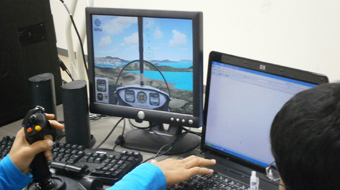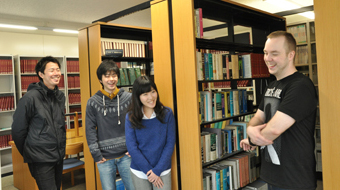Education
Industrial Engineering and Economics Undergraduate Major5 Features
Ability to identify problems, skills to solve problems.
-
1
Scientific Approaches to Tackling Problems that Arise in Modern Societies

Economic systems, corporate management, and many other socio-technical systems carry with them many challenging problems. These problems are often solved through experiential methods. However, scientific and systematic approaches based on mathematics, science, and engineering may make it possible to identify of the essentialities to the problems in order to find better solutions.
The Department of Industrial Engineering and Economics develops professionals to solve problems with scientific approaches who are highly sought after in modern society. -
2
A Breadth of Knowledge: Mathematics and Engineering to Management and Economics

In order to understand problems in management and economics, broad knowledge in areas such as management strategies, marketing, financial accounting, and organizational theory, and economics at the macro and micro levels is necessary. Furthermore, identifying problems, understanding their nature, and providing solutions to them requires fundamental knowledge in science and engineering such as statistics, mathematical engineering, and information systems, as well as knowledge of management technologies such as production management and quality management. For these reasons, the Industrial Engineering and Economics Undergraduate Major covers an unparalleled range of fields, from mathematics and engineering to management and economics.
-
3
Active Learning through Group Work and Projects

Lectures are not the only form of education at the Department of Industrial Engineering and Economics. The curriculum is designed so that students can also acquire practical knowledge through experiments and exercises.
Additionally, courses involving group work, projects, and presentations encourage students to become independent thinkers as well as good team players who can collaborate with others to tackle problems. The department's own library and active learning spaces provide students with the necessary environment to carry out group work or engage in other forms of study outside of class.
-
4
Diverse and Experienced Faculty

The wide range of subjects covered by the Industrial Engineering and Economics Undergraduate Major are taught by faculty members from around the world who have diverse backgrounds and varied academic credentials including degrees in engineering, commerce, and economics. Many have also had experience working in various sectors and industries including the manufacturing industry, financial institutions, consulting firms, government offices, and some also have teaching experience at other universities. This expansive range of experience enables the faculty to provide rich and insightful education.
-
5
Laboratories where Creativity Blooms and International Competence Matures

Once students complete courses at the 200- and 300-levels, they begin working on an Independent Research Project in their chosen laboratories. While conducting research, students are able to engage in daily discussions with graduate students and receive guidance from academic supervisors, facilitating the development of their creative capacity. The laboratories also provide an international setting where students may hold discussions regularly with other students from around the globe, thereby fostering their communication skills and international perspective.
